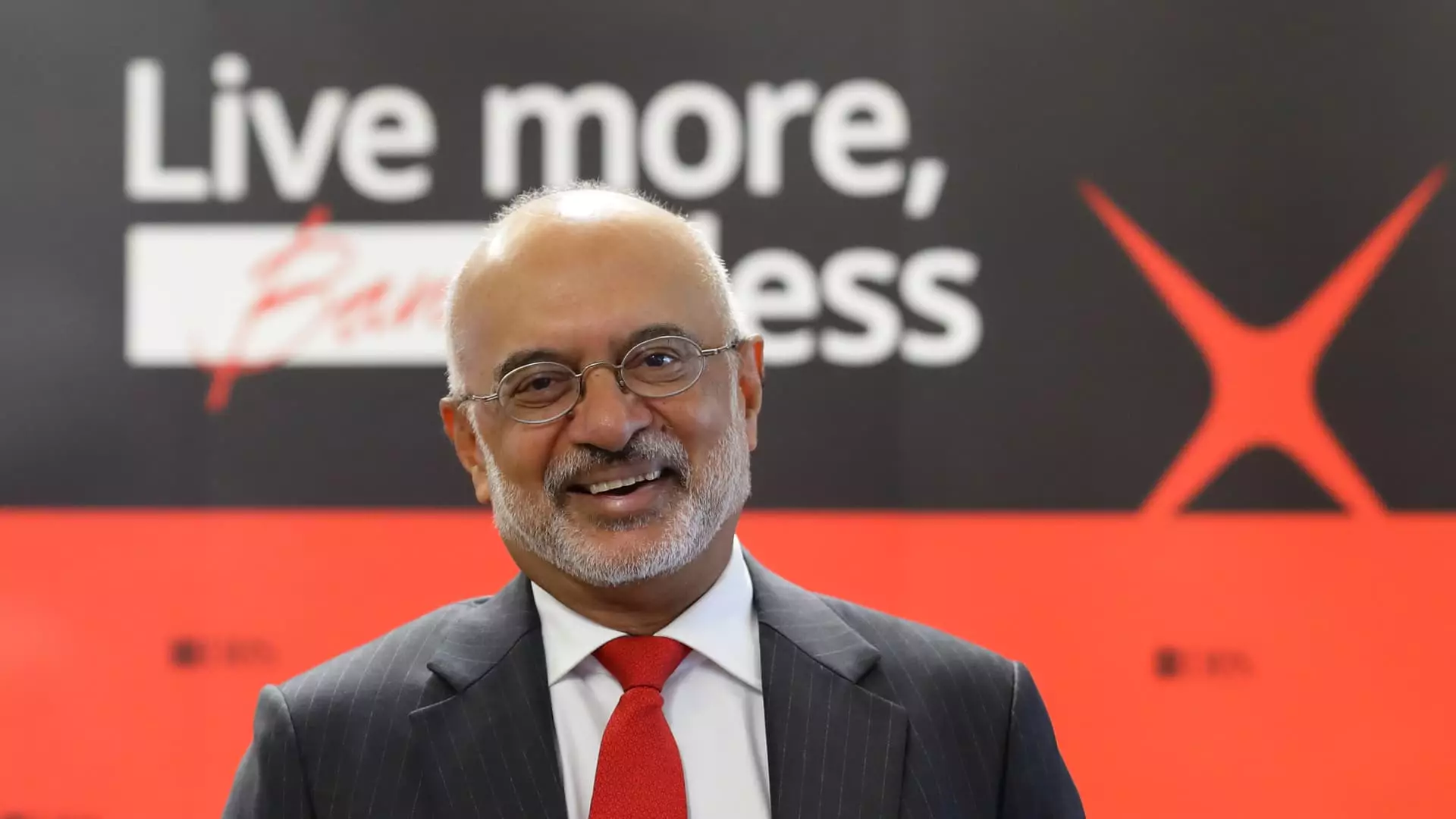In the wake of a successful 2024 marked by record-breaking net profits, DBS Bank is poised for a challenging year ahead. As indicated by CEO Piyush Gupta in a recent interview with CNBC, the bank faces a tumultuous 2025 characterized by unpredictable economic policies, particularly from the United States. This commentary comes as a surprise to many, considering DBS, Southeast Asia’s largest bank by assets, reported a significant profit increase for the financial year ending December 31. Specifically, the bank saw its net profit soar to an impressive 11.4 billion Singapore dollars, reflecting an 11% rise from the previous year.
Despite this success, Gupta emphasized the necessity for “agility” and “nimbleness” to weather the forecasted economic fluctuations. His comments underscore a crucial awareness of the potential impacts of U.S. tariff and monetary policies, especially given the unpredictable nature of the current U.S. administration’s economic strategies. With trade tariffs and tax policies oscillating, DBS must remain vigilant and adaptable to sustain its performance.
The prosperity of DBS Bank throughout 2024 can be attributed to several key factors. Notably, the bank achieved record-high fee income and substantial treasury customer sales. The net interest income, a core financial indicator representing the difference between earnings from loans and costs from deposits, also experienced a modest year-on-year increase of 5%, totaling 15.04 billion Singapore dollars. This robust performance prompted a surge in DBS shares, reaching a record intraday high of SG$46.5.
While celebrating this strong financial performance, Gupta also made it clear that the outlook for net interest income in 2025 might surpass that of 2024. This optimism springs from the shift in expectations surrounding interest rate cuts from the U.S. Federal Reserve. Initially forecasting four cuts, the bank has since revised its expectations to two, indicating a more stable yet still cautious financial landscape ahead.
In light of its stellar performance and strong capital position, DBS Bank announced a final dividend of 60 Singapore cents per share for the fourth quarter, marking a six-cent increase from the previous payout. This escalates the total dividend for the 2024 financial year to SG$2.22 per share, representing a commendable year-on-year increase of 27%. In additional strategic moves, DBS unveiled plans for a new “capital return” dividend of 15 Singapore cents per quarter throughout 2025, designed to manage excess capital efficiently.
This proactive approach to returning capital to shareholders signifies the bank’s commitment to maintaining investor confidence and fortifying its market position. Gupta highlighted the institution’s current capital adequacy ratio of 17%, which comfortably exceeds the established operating range of 13%. This robust capital position assures stakeholders of the bank’s stability while promising judicious capital returns in the forthcoming years.
The recent earnings announcement also marks a pivotal moment in DBS history as it will be Gupta’s last as CEO. He is set to hand over leadership to deputy CEO Tan Su Shan at the bank’s annual general meeting on March 28. This transition presents a unique opportunity for new leadership to build upon the strong foundation Gupta has helped establish while also addressing the challenges that lie ahead.
As Singapore’s largest bank approaches this leadership change amidst an unpredictable economic backdrop, the focus will undoubtedly be on sustaining its momentum while agilely navigating through potential shifts in the market landscape. The ability to adapt to the evolving economic scenario will be crucial as the financial institution aims to uphold its competitive edge and continue delivering value to shareholders.
While 2024 has been a triumphant year for DBS Bank, the path ahead is fraught with complexity. Gupta’s insights serve as a vital reminder that even amidst prosperity, the need for readiness and flexibility in strategy remains paramount. The focus on prudent capital management, coupled with an eye on external economic influences, will ultimately determine how well DBS can sustain its growth trajectory into an uncertain future.

